Plenary and Keynote Speakers
TACT2023 Plenary I
Nov. 12, 2023 (Sun) 14:00-14:50
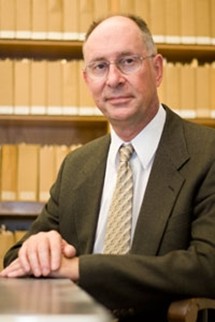
Prof. Frans A. Spaepen
John C. and Helen F. Franklin Professor of Applied Physics
School of Engineering and Applied Sciences
Harvard University
USA
Topic
Observing dislocations during epitaxial growth of colloidal crystals
Prof. Frans Spaepen is John C. and Helen F. Franklin Professor of Applied Physics at Harvard University. He got his undergraduate degree, in Metallurgical Engineering, at the K.U. Leuven in 1971, and a Ph.D. in Applied Physics from Harvard University in 1975. He joined the faculty of the Division of Applied Sciences at Harvard in 1977 as Assistant Professor, was appointed Associate Professor in 1981, and Full Professor in 1983. In 1984 and 2007 he was a Visiting Professor at the University of Leuven, and in 2000-01 a Humboldt visitor in Köln and Jülich. From 1990 till 1998 he was Director of the Harvard Materials Research Laboratory/Materials Research Science and Engineering Center. From 2002 to 2013 he was the Director of the Rowland Institute at Harvard. In 2008-09 he was Interim Dean of the School of Engineering and Applied Sciences and in 2009-10, he was Interim Director of Harvard's Center for Nanoscale Systems.
His research interests span a wide range of experimental and theoretical topics in materials science, such as amorphous metals and semiconductors (viscosity, diffusion, mechanical properties), the structure and thermodynamics of interfaces (crystal/melt, amorphous/crystalline semiconductors, grain boundaries), mechanical properties of thin films, and colloidal systems as models for the study of dynamics and defects in crystals and glasses.
He is a Fellow of the American Physical Society, the Materials Research Society, and the TMS. He is a member of the National Academy of Engineering and holds an honorary doctorate from the ETH-Zürich.
Professional Experience
- Harvard School of Engineering and Applied Sciences, USA
- Present: John C. and Helen F. Franklin Professor
- 2008-2009: Interim Dean
- Harvard Center for Nanoscale Systems, USA
- 2009-2010: Interim Director
- Rowland Institute, USA
- Harvard Materials Research Laboratory/Materials Research Science and Engineering Center, USA
- Harvard Division of Applied Sciences, USA
- 1983: Professor
- 1981: Associate Professor
- 1977: Assistant Professor
Honor
- Member, National Academy of Engineering, 2008
- Fellow, American Physical Society (chairman of the Division of Materials Physics in 1992)
- Fellow, Metallurgical Society of the American Institute of Mining, Metallurgical and Petroleum Engineers
- Member, Vlaamse Academie voor Wetenschappen en Kunsten
- Fellow, Materials Research Society
Research
- Amorphous materials (metals, semiconductors, polymers): structure, formation, stability, mechanical properties, atomic transport (viscosity, diffusivity, structural relaxation, crystallization)
- Polytetrahedral structure of liquids and quasicrystals
- Thin films and multilayers: preparation, stability, mechanical properties. General effects of size scale on mechanical properties
- Properties of interfaces: crystal/melt, amorphous/crystalline semiconductor, grain boundaries, grain growth, interface tension, interface stress.
Colloidal systems as analog computers for the study of defects and deformation of crystals and glasses (with D. Weitz) - Determination of Avogadro's number with an accuracy or better than 10 ppb. Collaboration with metrology laboratories worldwide that are using the silicon single crystal approach. Developing methods to certify the perfection of the silicon to 10 ppb
Website
https://spaepen.seas.harvard.edu/
TACT2023 Plenary II
Nov. 14, 2023 (Tue) 09:00-09:50
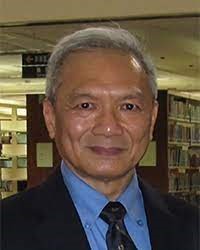
Prof. King-Ning Tu
Chair Professor, Department of Electrical Engineering
Chair Professor, Department of Advanced Design and Systems Engineering
Chair Professor, Department of Materials Science and Engineering
City University of Hong Kong
China
Topic
Electronic Thin Film Reliability in 3D IC Technology
Professor TU King-Ning is the Chair Professor of Materials and Electrical Engineering of the City University of Hong Kong. Professor Tu received his BSc degree from National Taiwan University, MSc degree from Brown University, and PhD degree on applied physics from Harvard University in 1968. Professor Tu has been the TSMC Chair Professor and E. Sun Scholar of National Chiao Tung University, Taiwan. Professor Tu is a world leader in the science of thin films, especially in its applications in microelectronic devices, packaging and reliability. His recent work is on predicting failure in modern microelectronics based on entropy production.
Professional Experience
- National Chiao Tung University, Taiwan
- 2016.07-Now: TSMC Chair Professor
- National Chiao Tung University, Taiwan
- 2019.04-2022.03: Yushan Scholar (sponsored by Ministry of Education, Taiwan)
- School of Materials Engineering, Nanyang Technology University, Singapore
- 2002.09-2002.10: Tan Kah Kee visiting professorship
- Department of Materials Science & Engineering, UCLA, USA
- Department of Materials Science & Engineering, UCLA, USA
- 1993.07-2016.06: Professor
- Department of Electrical Engineering, UCLA, USA
- 1993.07-2016.06: Professor
- Department of Materials Science, Cornell University, USA
- 1988.07-1993.06: Adjunct Professor
- IBM T.J. Watson Research Center, USA
- 1985.09-1987-10: 3rd Level Manager of Materials Science Department
- 1978-09-1985.08: 2nd Level Manager of Thin Film Science Department
- 1972.09-1978.08: 1st Level manager of Kinetics and Diffusion Group
Honor
- IEEE Division of Components, Packaging, and Manufacturing Technology Award in 2017
- Materials Research Society - Fellow 2014
- TMS John Bardeen Award in 2011
- TMS-EMPM Division Distinguished Scientist/Engineer Award in 2006
- Member of Academia Sinica, ROC, 2002
- Humboldt Research Award for Senior US scientists, 1996
- Acta/Scripta Metallurgical Lecturer, 1990 - 1992
- Churchill College - Overseas Fellow, 1990
- The Metallurgical Society - Fellow, 1988
- Materials Research Society - President, 1981
- The Metallurgical Society - Application to Practice Award, 1981
- American Physical Society - Fellow, 1981
Researche
Thin Film Materials Science, Kinetics in Nanoscale Materials, and Reliability Science in Microelectronic Devices
Website
https://www.ee.cityu.edu.hk/~kntu/
TACT2023 Keynote Speakers

| Prof. Diederik Depla
Professor
Department of Solid State Sciences
Ghent University
Belgium Topic:
Negative ion bombardment: how research and literature allows quantification |

| Prof. Samir Aouadi
Professor
Associate Department Chair for Graduate Program
Joint appointment to Physics
Department of Materials Science and Engineering
University of North Texas
USA Topic:
Self-healing ceramic coatings that operate in extreme environments |
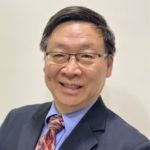
| Prof. Jyh-Wei Lee Distinguished Professor
Director of the Center for Plasma and Thin Film Technologies
Department of Materials Engineering
Ming Chi University of Technology
Taiwan Topic:
Development of functional high entropy alloy thin films by high power impulse magnetron sputtering technique
|
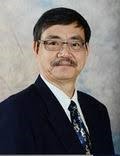
| Prof. Sam Zhang Shanyong Chair Professor
Harbin Institute of Technology
China Topic:
Superhard (MoSiTiVZr)Nx high-entropy nitride coatings
|
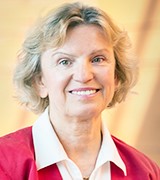
|
Prof. Jolanta Klemberg-Sapieha Professor
Director and co-founder of the Laboratory for Optical and Tribo-mechanical Metrology (LOTM)
Co-director and co-founder – Functional Coating and Surface Engineering Laboratory (FCSELLaRFIS, www.polymtl.ca/larfis)
Department of Engineering Physics
Polytechnique de Montréal (Polytechnique Montreal)
Polytechnique Montréal
Canada Topic:
Multifunctional Protective Coatings for Harsh Environments |
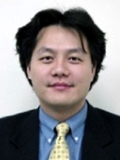
| Prof. Chengkuo Lee Professor
Electrical and Computer Engineering
National University of Singapore
Singapore Topic:
AI-Enhanced Sensors and Applications from AIoT to Metaverse |
|
|
| |